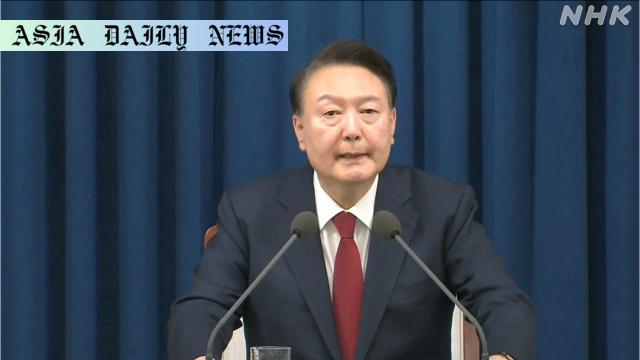Yoon Arrest: South Korea’s former president faces fresh charges linked to obstruction of duties and martial law allegations.
Former South Korean President Yoon Suk-yeol detained over obstruction allegations.
Investigation escalates with claims of evidence tampering and military misuse.
Indictment highlights political tensions under new South Korean leadership.

Introduction: Unfolding the Arrest of Yoon Suk-yeol
In a dramatic turn of events, former South Korean President Yoon Suk-yeol has once again been arrested, raising questions about his political decisions and the allegations surrounding his leadership. Arrested on Thursday by the special prosecution team, Yoon faces suspicion of obstruction of official duties, alongside charges tied to the imposition of martial law. This development not only sheds light on the former president’s controversial policies but also adds a significant chapter to South Korea’s ongoing political landscape. Yoon’s denial of the allegations and claims of political motivation behind the investigation further stir the waters of this contentious case.
Background: The Heavy Allegations Against Yoon
The arrest stems from Yoon’s reported involvement in declaring martial law in December during his presidency. The prosecution team accuses him of instructing the presidential security service to impede his detention earlier this year, an allegation he vehemently denies. Moreover, media findings suggest the former president ordered a military operation last October to send drones into North Korea, allegedly to provoke a retaliation that could justify imposing martial law. Such claims, if proven true, highlight tactics bordering on manipulation of military forces for political benefit—a grave assertion in any democratic society.
Political Context: A Changed Leadership Landscape
Yoon’s re-arrest comes amid political shifts in South Korea. With President Lee Jae-myung assuming office in June, the government brought in special counsels for an independent investigation, signaling a crackdown on politically charged misconduct. Yoon’s previous arrest in January for leading an insurrection saw his release in March, yet disputes over martial law linger. The new leadership’s position on justice and accountability contrasts sharply, suggesting a broader attempt to address systemic flaws and restore public confidence in governance.
The Investigation Ahead: Heightened Scrutiny and Public Impact
The special prosecution team has introduced charges against Yoon with implications of evidence tampering cited by the court. This deepens the gravity of the case as investigators delve further into Yoon’s actions during his presidency. For the South Korean public, the arrest raises mixed reactions: some see it as a necessary reckoning for alleged abuses of power, while others view it as politically motivated targeting of a former leader. Internationally, allies and observers closely monitor the proceedings as they intertwine governance, military integrity, and justice in this high-profile investigation.
Concluding Thoughts: What Lies Ahead for Yoon and South Korea
As investigations accelerate, all eyes remain on the prosecution team’s ability to substantiate the allegations against Yoon. The case underscores the high stakes of leadership accountability in a democracy. Former President Yoon’s trial embodies the tightrope of balancing political oversight with impartiality, which is essential for the system’s credibility. The outcome will undoubtedly serve as a precedent for addressing future allegations against prominent officials. For South Korea, this marks another critical moment in safeguarding the ideals of democracy and public trust.



Commentary
The Complex Dynamics of Leadership Accountability
Former President Yoon Suk-yeol’s recent arrest has highlighted the inherent challenges and complexities linked to leadership accountability in South Korea. The charges against him, such as obstruction of duties and martial law imposition, represent a serious inflection point for the nation’s democracy. It is a reminder that governance is not merely about policy effectiveness but also about ethical adherence and public trust. The deeper question is whether Yoon’s prosecution is purely judicial or shrouded in political intent.
Political Implications for South Korea
The political ramifications of Yoon’s arrest are hard to ignore. With Lee Jae-myung’s current administration initiating the independent probes, the narrative increasingly seems like a pivot toward greater transparency. However, skeptics argue that any political power could exploit investigations to suppress opposition figures. Navigating this thin line between justice and vendetta is an ongoing challenge for democracies worldwide, and South Korea is no exception. Just how this case will play out in shaping political narratives and public opinion remains to be seen.
A Broader Reflection on Democracy and Accountability
This high-profile case forces us to confront a larger truth about democratic systems—the constant struggle between power dynamics and checks and balances. Leaders are entrusted with extraordinary power, but the mechanisms to hold them accountable must be robust and free of bias. Former President Yoon’s case exemplifies the delicate balance needed to ensure that justice prevails without descending into political theatrics. As the investigation deepens, it serves as a stark reminder of the vigilance required to protect democratic ideals from erosion.